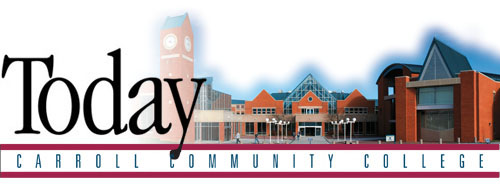
| Winter 2003, No.
10 |
|
ContentsIncomes Double After Carroll Graduation Language Classes for Non-English Speakers and Those that Serve Them Students Compete with Mousetrap Cars College Open House to be Held Monday February 17th
|
|
|
|||||||||||||||||||||||||||||||||||
|
Incomes Double After Carroll Graduation
|
|||||||||||||||||||||||||||||||||||
|
Completion of a career degree program at Carroll yields a quick return on investment. A new study sponsored by the Governor's Workforce Investment Board and conducted by the Jacob France Institute at the University of Baltimore, found substantial income gains in the three years following students' graduation from the community college. Overall, for the cohorts studied, the median annual income of Carroll Community College graduates three years after graduation was 2.4 times their income prior to graduation. Put another way, completion of the community college career program was associated with student incomes more than doubling in three years. Information technology graduates had the highest average income three years after graduation, $38,014. Physical therapist assistants who graduated from Carroll were earning $29,709 per year on average. Graduates of business and accounting programs earned an average of $27,006. Early childhood education graduates had the lowest median income, $13,344, but this was $3,168 higher than their incomes prior to completing their degree. The study identified annual earnings from Maryland state wage records for six graduating classes—the classes of 1995 through 2000. Only graduates of A.A.S. career programs were studied. The income data were limited to Maryland unemployment insurance databases, so graduates working in other states, working for the federal government, or who were self-employed were not included. Jacob France was able to find income data for 81 to 90 percent of the graduates in each class. A relatively young college, Carroll's career program offerings are limited. Over 80 percent of Carroll's credit students are in baccalaureate-transfer programs. Expansion of career degree programs is constrained by budget limitations. Career programs are generally more expensive to deliver than transfer programs, due to program-specific accreditation requirements, specialized equipment needs, mandated small class sizes, and laboratory and clinical courses. Thus this study included a relatively low number of graduates—an average of 39 per cohort. Data were found for over 80 percent of the graduates in the study. Unduplicated
Headcount, FY2000-FY2002
SOURCE: Jacob France Institute. Data for graduates of other programs, included in the total, were not disclosed due to the low number of graduates. Income data were adjusted for inflation. |
|||||||||||||||||||||||||||||||||||